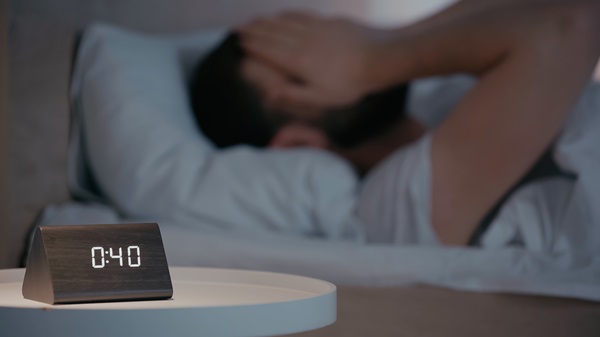Study Finds Link Between Nighttime Wakefulness and Suicide
Researchers say being up late at night may be linked to dangerous behavior
It’s well-known that better sleep has numerous health benefits, while disrupted sleep can cause or exacerbate many medical issues. However, many people may not be aware of the link between disturbed sleep and suicide.
But that link is quite strong, according to researchers at the University of Arizona College of Medicine – Tucson, who studied the times at which suicides and homicides occur. The result: while the most overall suicides happen in the middle of the day, when adjusted for the number of people who are awake at the time, the risk of suicide is five times greater between 2 AM and 3 AM.
The researchers’ “mind after midnight” hypothesis
The study, published last month, reviewed data from more than 78,000 suicides and 50,000 homicides in 35 states between 2003 and 2017. Suicide and homicide likely have more in common than is currently known; this study found another common feature: increased risk due to nocturnal wakefulness.
According to the study authors, being awake late at night has dangerous effects on the brain. Complex decision-making and rational thinking are weakened, risk/reward processing is distorted, and all this occurs while negative mood is at its peak.
The study found that these risks were exacerbated by other factors that impair decision-making and rational thinking, such as intoxication with alcohol. And the risk was highest among people age 15-24, who already have less ability to make complex decisions and think rationally compared to older adults.
A previous study, published in 2016 in the Journal of Clinical Psychiatry, found a similar connection between being awake at night and suicide risk. The authors of that study suggested that disturbed sleep and circadian neurobiology may have an effect on suicidality.
Understanding the link between sleep and suicide is critical for suicide prevention
The good news hidden in these study results is that insomnia can be managed and sleep disruptions can be mitigated. If we can help people who are at risk of suicide get better sleep, the data says that the risk of death by suicide will be at least somewhat reduced. Psychiatrists and other mental health providers should incorporate sleep assessments and appropriate interventions into their safety plans for patients who are at risk of suicide. They also need to follow up on patients’ complaints of disrupted sleep, treating them just as seriously as any other suicide risk factor.
Death by suicide occurs at times when decision-making, rational thinking, and impulse control are completely impaired. The popular myth that if a person wants to die by suicide, they eventually will, is just that: a myth. If appropriate interventions are made when a person is at the highest risk, the evidence says that they will most likely survive for the long term.
If you have lost a loved one to suicide completion, we can help
Another important component of suicide prevention is fighting for accountability for victims. The Law Offices of Skip Simpson stands up for families and holds negligent medical professionals accountable when they fail to protect patients at risk of dying by suicide. If you have lost a loved one to suicide completion, we would be honored to listen to your story in a free, confidential consultation. We’re based in Texas but serve families nationwide.





